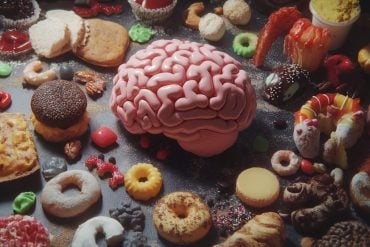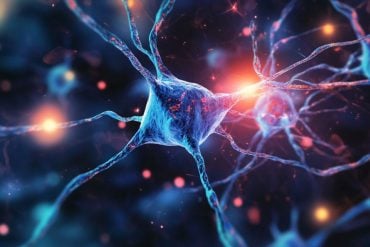Summary: Fear memories are formed when cells in the hippocampus form discrete clusters and sleep is important to the stability of these clusters.
Source: University of Tsukuba
Although we know that groups of cells working together in a specific brain region—the hippocampus—are vital for making, storing, and retrieving many types of memories, we still don’t have a clear idea of how these cells are organized.
Researchers in Japan have recently identified an important piece of this puzzle; in rats, fear-based memories were made when cells in the hippocampus formed discrete clusters, suggesting that memory formation requires cells to be organized in a specific arrangement. The research also indicates that sleep is important for the stability of these cell clusters.
Most previous studies looking at the cellular organization of memories have used a technique called electrophysiology, which is based on brain activity that brain cells use to talk to one another.
A major limitation of this technique is that it only allows the examination of a relatively small number of cells at a time, and within a limited area. Researchers from the University of Tsukuba used a different approach.
“A technique called ‘immediate early gene imaging’ allowed us to visualize cells that were active at a specific time within the entire rat hippocampus, rather than just a small part of it,” explains Dr. Jiyeon Cho, lead author of the study.
“We were able to see that, when memories were being formed, groups of active cells were organized in small, compact clusters throughout the hippocampus.”
The researchers had previously used the same technique to identify similar small clusters of active cells during the formation of two other kinds of hippocampal-dependent memory. Together, their findings suggest that memory-encoding cells in the hippocampus need to be organized in a certain way in order to form memories.

Because sleep is vital for memory formation, the research team then decided to examine whether sleep had any effects on cluster organization. When rats were allowed to sleep after being trained to remember a fear-inducing stimulus (a small electric shock to the paws), they had much stronger memories of the fear, and there were also more clusters of active cells in their hippocampi.
“Together, our results demonstrate that the organization of cell clusters in the hippocampus is important for memory formation, and suggest that sleep helps to stabilize cell clusters to improve memory,” says senior author of the study Professor Constantine Pavlides.
“These findings take us one step closer to understanding exactly how memory works.”
A better understanding of memory at a cellular level and how the network in the brain works together to perform memory may help us to improve the quality of life one day of millions of people living with dementia and other memory-related disorders, which are currently very difficult to treat.
About this memory research news
Author: Press Office
Source: University of Tsukuba
Contact: Press Office – University of Tsukuba
Image: The image is in the public domain
Original Research: Closed access.
“Hippocampal cellular functional organization for fear memory: Effects of sleep” by Jiyeon Cho et al. Hippocampus
Abstract
Hippocampal cellular functional organization for fear memory: Effects of sleep
Memory is vital to our daily existence. Although a large number of studies have suggested that the hippocampus is dedicated to long-term memory, understanding how memory is anatomically encoded within the hippocampal neuronal network is still lacking.
Previously our laboratory showed that hippocampal pyramidal cells are organized in cell clusters to encode both spatial and episodic memory.
Based on these findings, we hypothesized that “cluster-type” is a functional organization principal in the hippocampus to encode all types of memory.
Here, we tested whether contextual fear, another hippocampus-dependent memory, is also organized in cell clusters. We further investigated the possibility that post-learning sleep may affect functional organization. Cluster formation was examined by assessing the topographic localization of active cells using immediate early gene (IEG, Zif268) imaging methods.
The first experiment provides evidence of a cluster-type organization in the hippocampus for fear memory by showing a spatial distribution of adjacent Zif268 positive cells.
Exposure to the context itself, without electric shocks, induced a similar cellular formation; however, the degree of clustering was significantly lower. The second experiment provides evidence that sleep plays a role in the refinement and long-term stability of the clusters.
The present results confirm the existence of a cluster-type topographic functional neuronal organization in the hippocampus for memory, and further suggest that post-learning sleep enhances the cluster-type organization.






